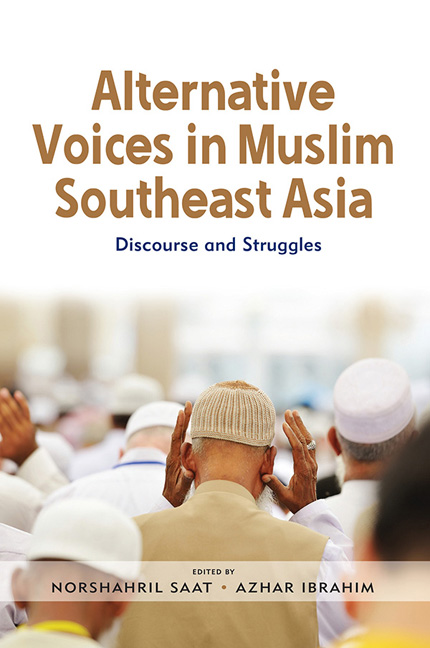6 - The Trials of the Progressive: Malay Literary and Cultural Expressions in Singapore
Published online by Cambridge University Press: 02 April 2020
Summary
The creative thought is always a critical thought because it does away with certain illusion and gets closer to the awareness of reality. It enlarges the realm of man's awareness and strengthens the power of his reason. The critical and hence creative thought always has a liberating function by its negation of illusory thought.
—Erich FrommThe emergence of modern Malay literature at the turn of the twentieth century came alongside the growing nationalistic and reformist consciousness clamouring for the Malays to address and confront the challenges of development. These challenges included the economy, education, culture, and religious and intellectual thought. Generally, progressive religious and cultural ideas in Malay society are largely expressed via the literary medium, which is more pronounced than mainstream religious discourse. Reformist ideas of the time were articulated and debated through novels, short stories and essays. The role and contribution of literature in Malay society cannot be underestimated. Thus, any study on Malay society that ignores the literary tradition will miss one of the important cultural and intellectual expressions of the Malays, be it in the past or the present.
This chapter does not seek to chart the development of Malay literature. The aim is to highlight that the literary realm is a creative and critical site where progressive ideas are articulated. Therefore, an appreciation of the historical and sociological dynamics, beyond dissecting texts, an approach that is often taken up in mainstream formalistic literary studies, is necessary. The literary realm can be viewed as contending sites where progressive writers apply the literary medium to annunciate and denunciate ideas in society, inasmuch as regressive and problematic ideas have found their way into literary works too.
By progressive writers, we mean those who have articulated and advocated reformist ideas against religious traditionalism and obscurantism, while recognizing the primacy of human reason, human dignity and rights, political and social freedom, economic and social justice, intellectual and cultural creativity and the overall sense of humanity and rootedness in history and society. Not all of these attributes can be found in any single writer among those whom we classify as “progressive”. In reality these ideas had been articulated by a number of writers, with some articulating them more consistently and persistently than others. In some cases reformist writers also express conservative ideas, reflecting competing streams of ideas in society.
- Type
- Chapter
- Information
- Alternative Voices in Muslim Southeast AsiaDiscourse and Struggles, pp. 67 - 88Publisher: ISEAS–Yusof Ishak InstitutePrint publication year: 2019

